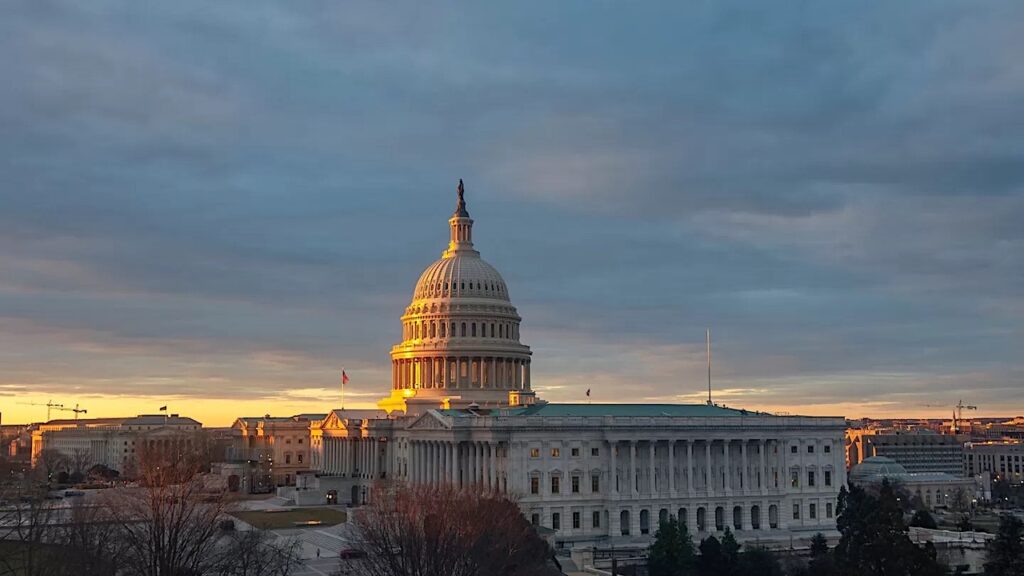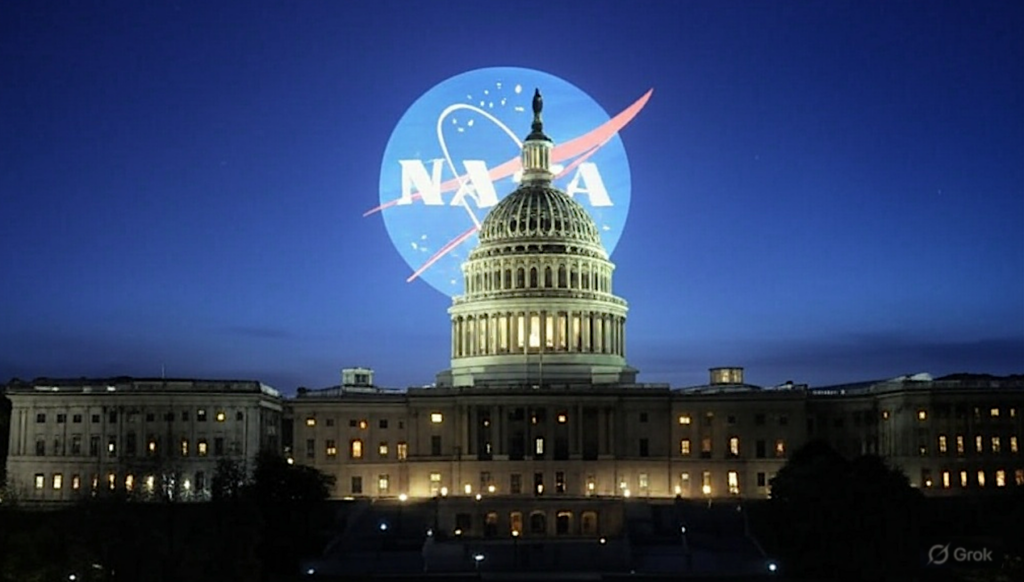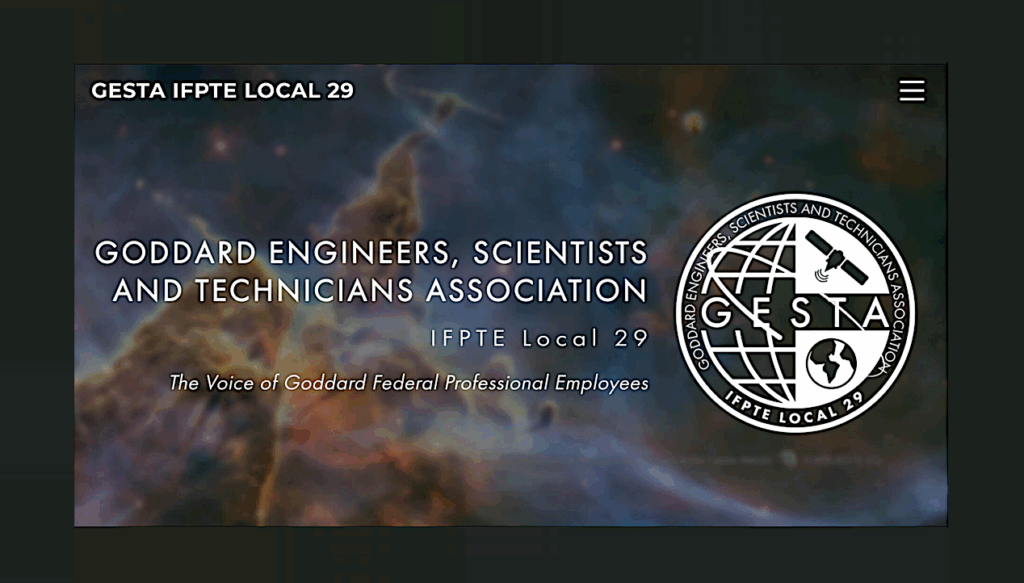The Senate NASA Compromise: A Hinge of History?
 Frank Sietzen Jr.: Last week, the Senate Commerce, Science and Space Committee marked up a draft of a proposed FY2011 Authorization bill for NASA. That bill maintains the Obama administration’s top line budget for the civil space agency, but otherwise it contains virtually none of the individual funding areas for human spaceflight that the administration had sought.
Frank Sietzen Jr.: Last week, the Senate Commerce, Science and Space Committee marked up a draft of a proposed FY2011 Authorization bill for NASA. That bill maintains the Obama administration’s top line budget for the civil space agency, but otherwise it contains virtually none of the individual funding areas for human spaceflight that the administration had sought.
But it’s my contention that the bill, whether or not it ever gets passed into law, is an historic development in legislative space affairs. Back in 2004, in our book “New Moon Rising”, Keith Cowing and I used the phrase “opening a hinge of history” to describe how the Columbia Space Shuttle disaster provided an opening for an historic new direction in space policy. We initially perceived that direction as being the first era of human spaceflight since 1972 that was not to be dominated by the Shuttle program. But what really emerged would eventually become the so-called “Vision for Space Exploration”.
We also wrote that NASA was given an extraordinary opportunity by President George W. Bush, to embark on a whole new space objective, just 10 and a half months after killing seven astronauts in a highly public catastrophe. It would seem that the VSE is now dead. But what follows it is not exactly what President Barack Obama wanted, either. In acting independent from the Obama Administration in crafting a space budget that interprets Flexible Path in a slightly different way than Obama’s original FY2011 proposal of February 1st, it marks an historic departure for the Senate.
Here’s why:
As observed by reporter Terence Samuel, Congressional oversight became extinct once President George W. Bush took office after the Florida recount in 2001. Think of all of the major issues of the time: the decision to invade Iraq and Afghanistan, the development of a new Homeland Security bureaucracy, the torture revealed at Abu Graib, scandals at the IRS, in nearly every case Congress abdicated its Constitutional oversight requirements.
Oh yes there were hearings, independent commissions established and reported out (remember the 9-11 Commission and their hugely popular report, published as a book? Whatever happened to their recommendations? You guessed it…) In an article in Foreign Affairs magazine Thomas E. Mann and Norman J. Ornstein, two highly respected Congressional scholars wrote “In the past six years congressional oversight of the executive across a wide range of policies but especially on foreign and national security policy has virtually collapsed.”
A Washington, DC conference on the future of Congressional leadership held just before the 2006 elections in which Democrats recaptured control of the House and Senate observed that in today’s Senate, the typical members were “mavericks, party hacks, and ideologues”, rather than the statesmen for whom the Senate was conceived.
If all of this is true, then the action of the Senate with regard to NASA is all the more remarkable. The language of the compromise bill passed unanimously takes something from everybody. It slashed the administration’s request for commercial crew services as well as advanced technology demonstrators, potentially alienating the White House and Florida officials who were looking towards the new commercial space industry to create jobs that could ease some of the losses that canceling Constellation might cause.
It took the administration’s restructuring of the Orion CEV into a rescue vehicle for the ISS and made it into a “Multipurpose Crew Transportation Vehicle”, basically the CEV by another name, also capable of flying to the ISS. The effectively makes a government competitor to the commercial crew vehicles whose development funds were cut to pay for it. By cutting so much of the planned technology budget, it risked prolonging development of “game changing” systems that could advance human exploration beyond Earth orbit.
Yet within minutes of the Senate press conference announcing the compromise bill, both the Obama administration and NASA announced their support for the bill.
Even if one expects much of these funds to be restored either by Senate appropriators or the House, this was an extraordinary achievement for a Senate normally locked in partisan gridlock.
So my questions to NASAWATCH readers:
-How do you think this compromise came about? Who gave what and when?
-What do you predict Sen. Shelby and the approps committee will do with it, and what is the House likely to change?
And, lastly, if you were NASA, how would you go about building a new public outreach and legislative coalitions to pass the bill?
Let’s have a thoughtful conversation that mirrors the seemingly careful and politically artful actions of this past week.
Writing in the Wall Street Journal, Peggy Noonan notes the 50th anniversary of the publication of Harper Lee’s novel To Kill A Mockingbird. The lead character, Atticus Finch, was a sort of father figure, the wise and mature adult that watched over his child as she slept at night “and would be there when Jem waked up in the morning”, in other words still engaged in the day to day work that would follow. A rooted, unflappable solid presence in the life of his family and community, whom you always knew where he stood but without blustering. In the life of his community, he would always be engaged for the long haul. Noonan laments the absence of such adults in today’s political climate and discourse. But she’s wrong in the case of the Senate’s NASA bill.
There were “adults” on both sides working behind the scenes to develop and sell this compromise, even if there are to be changes made ahead. No posturing, no noise, no lines-drawn-in-the-sand. Just a compromise that, on the face of it now, appears everyone can and will embrace. For the first time in years, the Senate has taken an administration proposal and made substantive changes to it that a bipartisan coalition supports-and the White House, too. This was not done when America went to war in 2003, nor was the Senate able to make substantial cuts to federal spending proposed by Bush in his second term, or the tax cuts for the wealthy that added to the deficit.
But after five months of hearings that generally failed to shed much more light on the Obama space proposals, the Senate committee, largely acting in secret, rearranged the boxes of the Obama plan while restoring that part of Constellation with the most support: the Orion capsule and a new booster to launch it different from the previously faulted Ares rocket family.
If this isn’t a hinge of history I don’t know what is. The true story of how these developments came together, as someone recently observed, would make a great future PhD. thesis, or a book. On the oft chance I should live so long, I’m taking good notes. And listening for the ones that will be there, still engaged, when we all “wake up in the morning”.
Thoughts?







